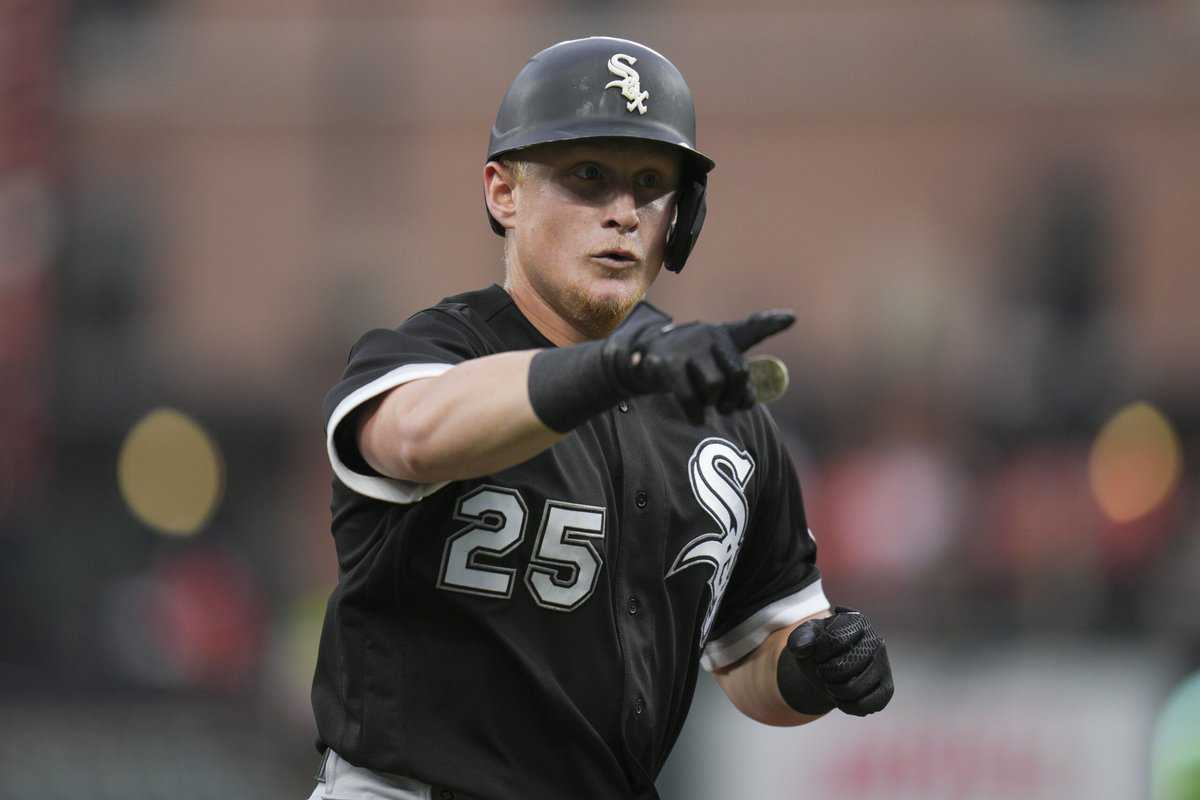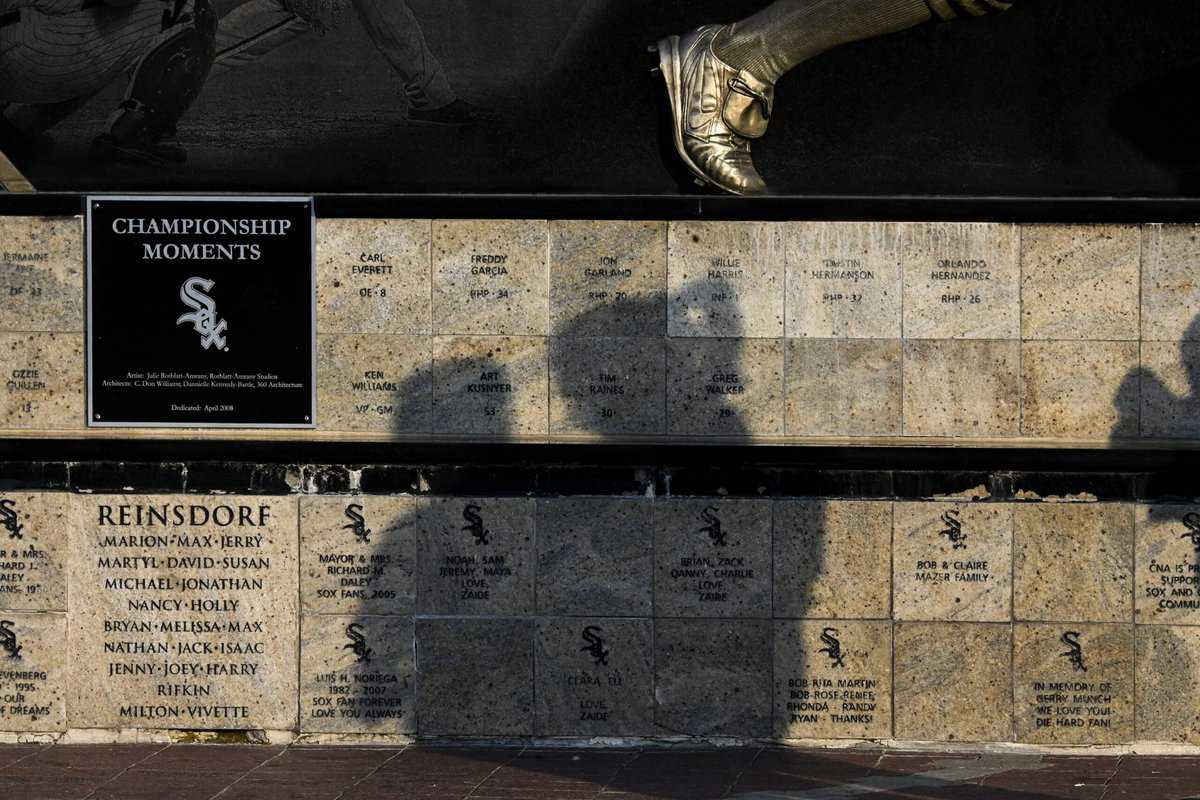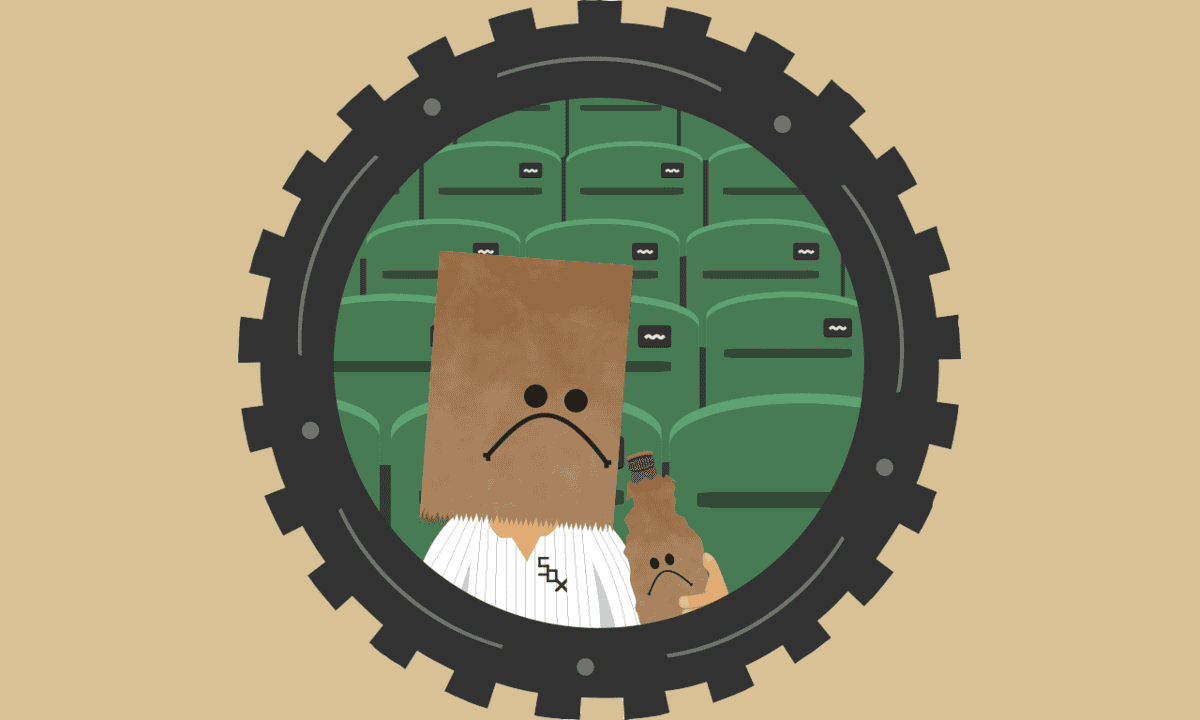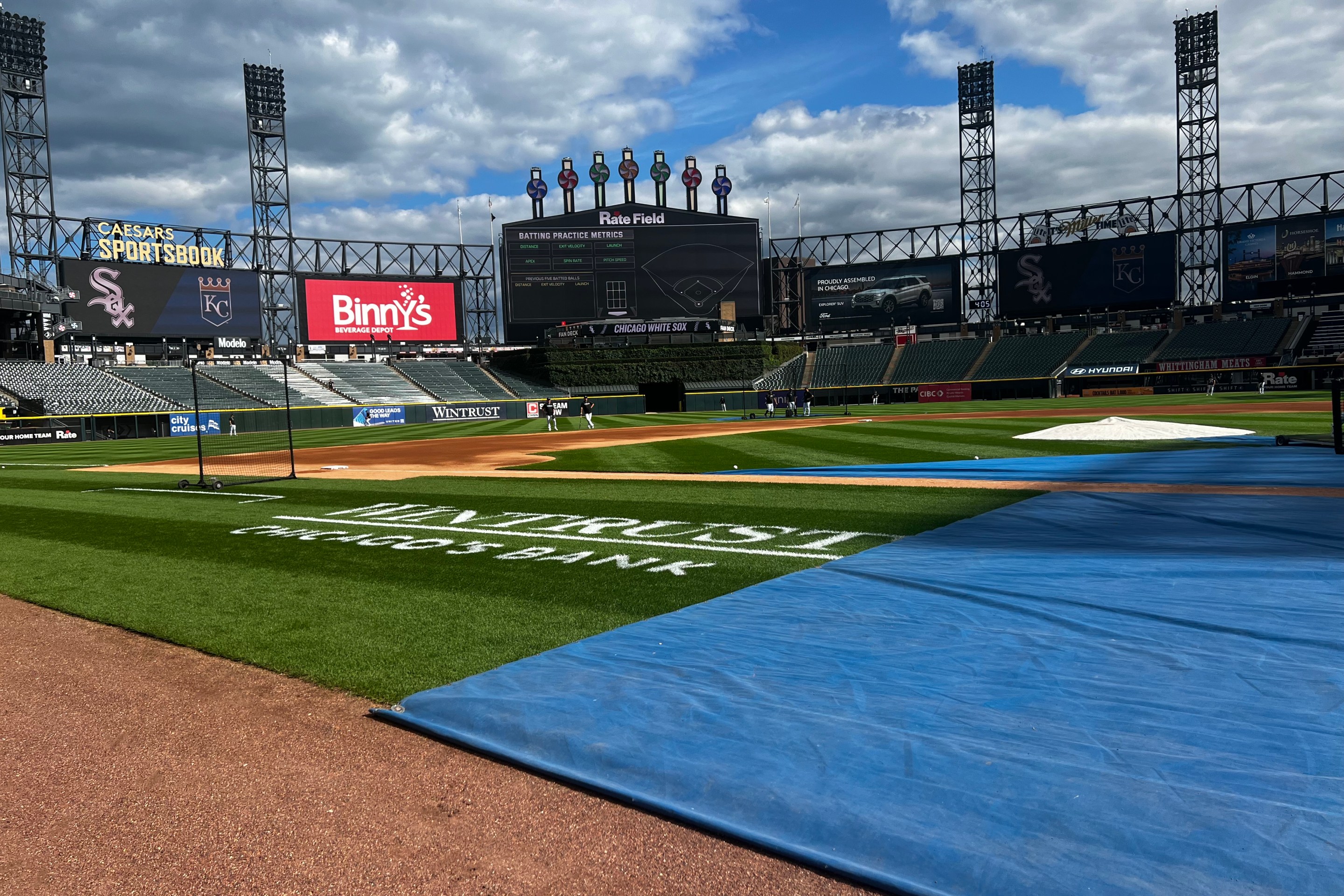It was nearly two years ago to the date that Bob Nightengale reported, and then insisted, that Tony La Russa was a legitimate candidate for the White Sox's managerial opening. It took me more than that to start taking the idea seriously, but I've learned my lesson.
Nightengale might be just as flawed as any other baseball scoophound when it comes to relaying messaging from agents, but if it involves decisions that only involve the White Sox front office, I more or less brace for the inevitable. As I put it before:
The way Nightengale breaks White Sox news reminds me of high school, when my friend would inform everybody in a crowded car, "Gentlemen, I'm about to fart and there's nothing you can do about it because it already happened."
— Jim Margalus 🥌 (@SoxMachine) June 27, 2021
He had a couple of White Sox-related items. One said the White Sox don't want to hire a first-time manager to replace La Russa, and that warrants a separate post. The other:
The White Sox loved having Jose Abreu the past nine years, and he has been nothing but a class act and valuable hitter, but they plan to part ways with him. Simply, they need to shake up their team, and are making virtually everyone but Dylan Cease and Andrew Vaughn available in trades.
Two of the three news items in that paragraph fail to register as a surprise: José Abreu's free agency naturally alleviates the logjam at first base and DH, although that decision may also relieve the White Sox of production from those spots, given that he's the only White Sox hitter who's shown the ability to survive a six-month grind as of late. Dylan Cease seems good for a runner-up finish behind Justin Verlander in AL Cy Young voting, and while I personally wouldn't argue that he's untouchable because of that walk rate, it's a tall task to trade him for equal value, especially since he's just entering his first year of arbitration eligibility.
Putting Andrew Vaughn on that level? I want to get it, but I don't.
It's really tough to write about Andrew Vaughn without slagging him, and that feels unfair. He finished below replacement level (-0.2 bWAR, -0.4 fWAR) despite above-average production (111 OPS+, 113 wRC+) because the White Sox painted him into an outfield corner. Because of his league-worst work as a regular outfielder, he became the first qualifying hitter in White Sox history to finish below replacement level despite an OPS+ above 110.
If all of Vaughn's issues were limited to his outfield work, then Abreu's departure would solve everything. What really concerns me are two other issues that might be isolated from defensive duties.
No. 1: His improvement is basically all singles.
Vaughn definitely made strides as a hitter in 2022, and you can see it just from looking at his two batting lines:
- 2021: .235/.309/.396, 91 OPS+
- 2022: .271/.321/.429, 111 OPS+
It's only a 45-point gain in OPS+, but it's a 20-point gain in adjusted OPS because of the considerably stingier offensive environment. He shaved 4 percent off his strikeout rate and covered just about every pitch better in his second crack at MLB pitching (sliders are still an issue).
The problem is that an improved approach didn't manifest itself in sticker categories. While he reduced his strikeouts by 4 percent, his walk rate experienced a more significant drop-off, falling from a respectable 8.7 percent to 5.6 percent. Per Statcast, he went from a 47th percentile rate to 17th percentile. Meanwhile, he just about duplicated his ISO from his rookie year (.159, compared to .161 in 2021), so while he set career highs in doubles, triple(s) and homers, they're all proportional to the increase in playing time.
If Vaughn could handle any other position besides first base at an average level, you could more or less wave away these concerns as nitpitcking. But if the White Sox are giving up on a versatile Vaughn -- and they absolutely should -- then all he has is impact at the plate, and that's been muted.
Sure, Vaughn led the team with 17 homers and 76 RBIs, but those are the most pitiful team-pacing totals since the days of Ivan Calderon, who led the White Sox with 14 homers in 1989, and 74 RBIs in 1990. (The White Sox then traded Calderon after the latter season to Montreal in a five-player deal that netted Tim Raines, so the Sox should absolutely considering dealing Vaughn for a future Hall of Famer.)
No. 2: He had another subpar second half.
Vaughn's production has eroded after the All-Star break in both his seasons.
| Half | 2021 | 2022 |
|---|---|---|
| First | .253/.320/.452 | .301/.350/.470 |
| Second | .210/.294/.318 | .234/.285/.381 |
If there's some reason for optimism, his struggles this past year were more concentrated in the very end of the season, as he finished the season 3-for-41 with just two walks and no extra-base hits, which means he more or less mirrored the White Sox's overall trends after that gutting loss to Cleveland on Sept. 20.
Tony La Russa went out of his way to rest Vaughn during the first half in hopes of preserving his production over six months, often citing a lack of legs after a busy day in the outfield a la General Soreness-era Ken Griffey Jr. It didn't appear to make much of a difference, and it's hard to tell if it was one of many ill-fated half-measures the White Sox used to manage injuries, or if Vaughn truly has the recovery time of somebody 15 years older.
Here's where Vaughn's lack of even one full season in the minor leagues makes things especially murky. He's done a terrific job of treading water in the majors despite having very little experience to draw upon, but the lack of track record and his other limitations make it hard to count on a smooth transition from "surviving" to "thriving." It took Carlos Rodón several years to learn a routine that worked for him, and he just qualified for an ERA title for the second time in eight seasons. He turns 30 in December.
There's reason to believe Vaughn can continue to improve, especially once he's freed from manning a position he can't handle. There's reason to believe that, with reps, he can reintroduce his plate discipline into an approach that features improved plate coverage. There's reason to believe that he was specifically vulnerable to the surprise dead ball because the opposite-field homers dried up on him ...

... and maybe he can make adjustments to compensate if MLB and Rawlings don't (over)correct for him.
There's also a chance that he doesn't make meaningful progress, whether it's because the waterlogged baseball is here to stay, or his plate coverage means he can be used against him to limit damage, or sliders will continue to vex him as they do many right-handed hitters. Or maybe he'll make progress on the fronts he can control, but the lack of long levers makes it harder to generate plus power against the world's best pitching.
These are all open questions, especially because we don't know how much is nature and how much is nurture. I really wish the Sox tried blocking him in 2021, because everybody could've learned a little about Vaughn with much lower stakes, and the attrition rate on the South Side the last two years has eradicated any concerns that the Sox have too many players.
Alas, those assessing Vaughn are in this tug-of-war situation where the White Sox might be selling low, unless they'd be selling high. This doubt is why I'd at least like to see the front office entertain the idea of moving Vaughn -- not because they should deal him, but because it'd indicate an ambition to bolster the lineup beyond his contributions. Instead, the White Sox have put themselves in a position where they more or less have to bank on linear development, when Hahn has said time and time again that it cannot be guaranteed.






